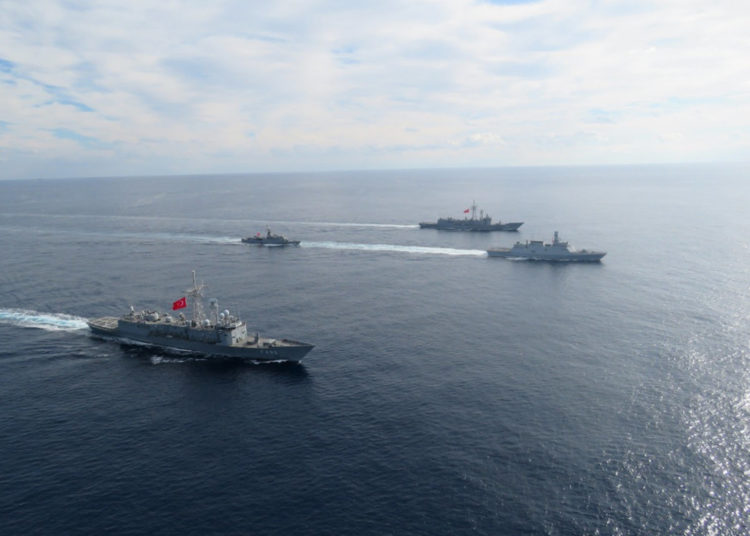Nordic Monitor
Ahead of the NATO Warsaw summit in 2016, Romania sought Turkey’s support for establishing a permanent NATO presence in the Black Sea region but was rejected by Ankara, a confidential Turkish military document obtained by Nordic Monitor has confirmed.
According to the minutes of a meeting issued by the Plans and Principles Directorate of the Turkish General Staff in May 2016, representatives from the Defense Ministry, the Foreign Ministry, the relevant military forces and the Coast Guard Command met on May 26, 2016 to discuss Romanian proposals to establish a permanent NATO base in the Black Sea and to enhance bilateral cooperation between the two littoral states.
The minutes reveal that Romania had requested Turkey’s support for its diplomatic initiative aimed at setting up a regional naval command under NATO’s Allied Maritime Command (MARCOM), the headquarters of all NATO maritime forces. However, Turkish officials agreed to reject the Romanian proposal since it did not comply with Turkey’s policy on the Black Sea, the minutes stated.
Turkey had previously expressed concern about perceived Russian ambitions in the Black Sea region and called for a greater NATO presence there; however, its relations with Russia have improved since 2016, and Turkey has become resistant to backing a more substantial NATO role in the Black Sea.
First page of the Turkish military document:
Turkish officials stressed at the meeting that stability in the Black Sea should be maintained (paragraph 2.a); NATO activities would be supported in accordance with the limitations imposed by the Montreux Convention (paragraph 2.b); and Russia should not be unnecessarily provoked (paragraph 2.b), the military minutes revealed.
Turkey is a key country in the Black Sea since it controls the entrance and exit to the sea through the Turkish Straits system, which includes the Istanbul/Bosporus strait, the Dardanelles/Çanakkale strait and the Marmara Sea, connecting the Black and Mediterranean seas.
The l936 Montreux Convention gave the country control over the system and guaranteed the free passage of civilian vessels during peacetime. The convention stipulates that only littoral states can have a standing naval presence in the Black Sea. The tonnage and time spent in the Black Sea by ships from non-littoral states is restricted to 21 days, and submarines and aircraft carriers of non-littoral states are banned altogether.
Second page of the document:
The Foreign Ministry was working on Turkey’s maritime security concept in the Black Sea, and a new concept paper was to take the Romanian and Bulgarian proposals into account, the minutes stated. According to the military document, the Bulgarian bilateral cooperation plan was not discussed during the meeting.
Moreover, the minutes underlined that the Turkish officials agreed not to oppose the formation of a multinational land brigade in Romania, adding that a Turkish brigade would be affiliated with the Romanian Multinational Division South-East (MND-SE). Romania’s initiative to launch the Combined Joint Enhanced Training Center would also be supported by Turkey.

Romania was invited to join the North Atlantic Alliance at the NATO summit in Prague in 2002 along with Bulgaria, Estonia, Latvia, Lithuania, Romania, Slovakia and Slovenia and officially became a NATO member in March 2004. Four years later, it hosted the NATO summit in Bucharest on April 2-4, 2008.
According to its military strategy document, Romania, in terms of the NATO Force Structure, hosts the Multinational Division Southeast Headquarters, the NATO Force Integration Unit, the Deployable Communications Module Element and the Deveselu Missile Defense Base.
Romania considered Russia’s takeover of Crimea in March 2014 a direct threat and pressed NATO to have a strong presence in the Black Sea. Following the annexation of Crimea, naval assets from several allied nations and NATO’s Standing Maritime Group 2 increased military exercises in the region and regularly train for combat proficiency in the Black Sea. Furthermore, a Black Sea functional center has been established within MARCOM, and a multinational land brigade was formed in Craiova, Romania.
Last page of the document:












